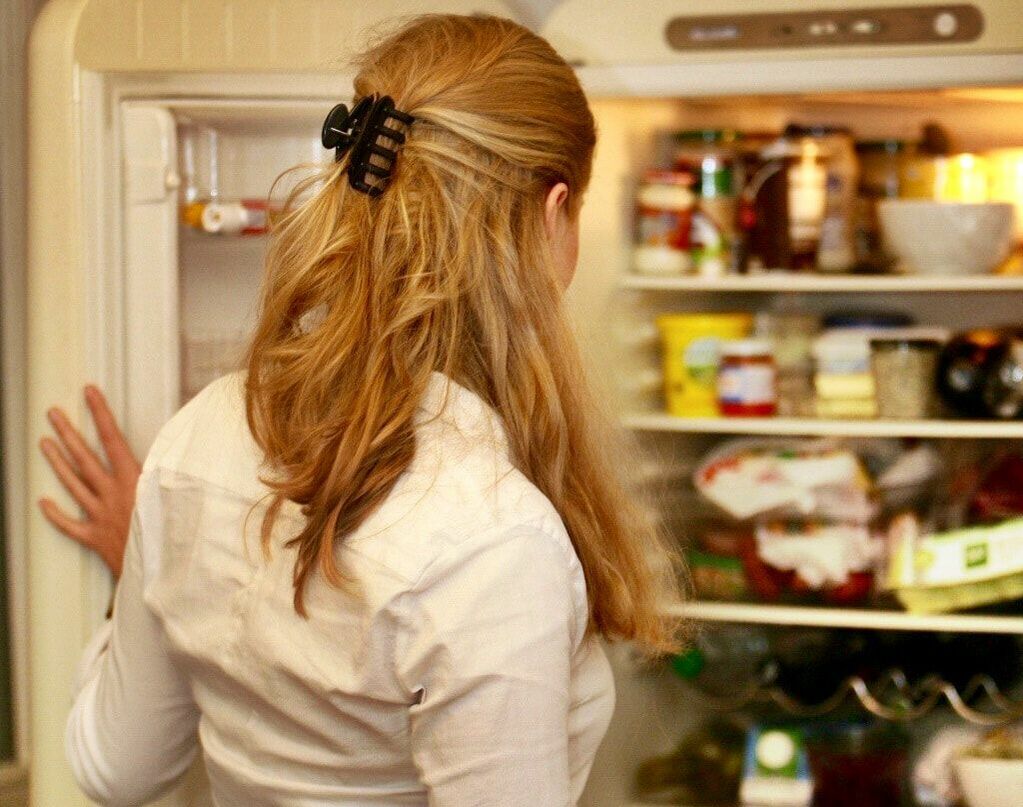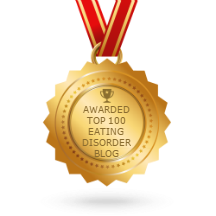- Home
- About
-
Services
- Therapy
-
Eating Disorder Trainings
>
- Clinical Approaches To Treating Body Image Issues
- Clinical Approaches To Treating Bulimia & Binge Eating Disorder
- Finding Freedom From Binge Eating
- Finding Freedom From Anorexia
- Supporting A Loved One With An Eating Disorder
- Eating Disorder Recovery Road Map
- Healing From Body Hate And Practicing Self-Compassion
- Common Questions
- Blog
- Press
- Contact
|
Are you exhausted from struggling with constant thoughts about food and your body? While everyone's experience is unique, I've been there. I know how exhausting it can feel to be struggling with an eating disorder. I can help! I provide eating disorder therapy in Rockville, Maryland serving Bethesda, Potomac, Olney, Gaithersburg, Maryland and virtually throughout Maryland. I personally recovered from my own eating disorder, which is what inspired my passion for this work. I then went on to receive professional training and many years of clinical experience in working with teens and adults with eating disorders and body image issues, including anorexia, bulimia, binge eating disorder, OSFED, ARFID, and orthorexia. I offer a free 15 minute consultation to see if it's a good fit!
0 Comments
You know who can make a really un-fun travel companion? An eating disorder. At the worst of my illness-I remember crying in anticipation of a weekend away. Being able to prepare my own food and stick to my rigid exercise routine was my safety blanket-and when traveling, it felt like it was being ripped away from me. I spent a huge amount of time and energy thinking about food, weight, and exercise while traveling. It was exhausting. Now, as I’m about to spend a week on vacation with a friend-I am so grateful to be able to actually enjoy vacations (including the food!) The following are a few tips if vacation anxiety is getting the best of you. 1. Think about what you’d want your ideal vacation to look like if you were recovered. Write out what you’d want to be focusing on if the eating disorder was not invited on your vacation. What memories and moments would you want to have? Eating disorders take you away from your true values and tend to cause you to focus on food, weight, and exercise. Work to take some ‘opposite actions’ to eating disorder urges when you are traveling that are in alignment with your vision: i.e. if your eating disorder tells you to restrict or binge at lunch-challenging yourself to nourish yourself appropriately. Example: If your eating disorder is telling you NOT to have a fruity drink-order the fruity drink. I know that taking ‘opposite actions’ is not easy but over time you will create new neural pathways in your brain and the positive behaviors will become more automatic. 2. Lean on your support system. If you are traveling with someone who you feel comfortable talking to about your eating disorder-try sharing with them what would be most helpful. Many people want to help but often they don’t know how. For example, telling your partner: “If I’m having a hard time making a decision on what to order when we’re out to eat, can you choose for me.” If you are working with a therapist, dietitian, and/or recovery coach-you can also email them for support as well. Real talk: reaching out for support when you’re struggling is so strong. 3. Plan what you can in advance. If there are any situations that you can plan to ‘cope ahead’ for in advance with your therapist, dietitian, and/or coach-that would be one idea. It can also be really helpful to pack snacks or buy some when you get there to have on hand. However, it’s good to practice flexibility i.e. saying ‘yes’ when someone asks you to grab ice cream in the afternoon-rather than solely relying on packed snacks. 4. Practice radical acceptance. Radical acceptance is a concept from dialectical behavioral therapy. It doesn’t mean that we ‘like’ a situation rather that we stop fighting against it. Work to radically accept that some things may feel ‘out of control’ on vacation (however that’s just your ED talking) and that you might have increased anxiety. 5. Use those mindfulness skills. I describe mindfulness of your thoughts like this: -Not being mindful of thoughts is like you are outside in the storm in the rain, without an umbrella and you are totally caught in the midst of this raging storm. -Mindfulness of your thinking is like you are watching the storm raging outside from indoors behind a window. The storm is still there but it’s not impacting you as much. Remember that just because you have a thought, does NOT mean that it is true. You can practice mindfulness by visualizing your thoughts being placed on leaves as they float down a stream. Practice responding to your eating disorder thoughts with some healthier statements-and consider making a list in the notes section of your phone so that this list is easily acceptable. Example: Eating Disorder Thought: You are gaining so much weight-you need to eat less. More Helpful Thought: I want to be at whatever weight enables me to travel without guilt, fear, or anxiety. Life is about so much more than my weight. My Hope for You My hope for you is that you get to have a positive experience while traveling and that someday you get to travel completely ED free. Life is far too short to be spending your vacation looking for the nearest gym, obsessing about food, or being bogged down by negative body image. You can totally get there. Just take it one ‘opposite action’ at a time. Jennifer Rollin, MSW, LCSW-C: is an eating disorder therapist in private practice in Rockville, Maryland. Jennifer specializes in helping teens and adults struggling with anorexia, binge eating disorder, and bulimia, and body image issues. Jennifer provides eating disorder therapy in Rockville, MD. Jennifer offers eating disorder recovery coaching via phone to people worldwide. Connect with Jennifer through her website: www.jenniferrollin.com
She has just finished dinner when the urges begin. It feels like the food in the pantry is calling to her. All she can think about is the package of Oreos, the peanut butter and bread, and the chips. She wants nothing more than to get lost in the cycle of eating. To numb out and to feel that initial pleasure as she washes down a package of Oreos with gallon of milk. But part of her doesn’t want to do this again. She wants nothing more than to be able to stop this terrible cycle. It's so exhausting. And she's always filled with shame and guilt after a binge. Yet, she doesn’t know how to cope with these intense urges. The following are a few of my tips for what to do when you feel urges to binge eat. The PAUSE Skill I developed a skill that people can use, which is called The PAUSE Skill. 1. Pause. Take a moment to pause at the first sign of when you feel the urge coming on. and then take a deep breath. Tell yourself that if you still want to binge after using this skill, you can-but first you are going to try this practice. 2. Allow space. Remove yourself from the kitchen (or whatever environment is triggering the urge, if you can) and go somewhere where you can sit down. Tell yourself that you are not trying to stop the binge, rather you are just practicing delaying action for right now. Ask yourself if you are feeling physically hungry. If so, choose to sit down and to eat something mindfully (ask yourself what taste, temperature, and texture of food you are craving and try to find a good match). If you are not physically hungry, continue with the rest of the skill. 3. Use other coping strategies and coping statements. Figure out what works best for you. Trying to process your emotions in the moment, might not be your best course of action (this would likely be better served at a time when you are not highly triggered to want to binge i.e maybe in therapy or in the morning). When urges are intense, I recommend choosing 5-10 distraction coping strategies that you can do for at least 10 minutes each. You can also tell yourself some coping statements. Here are a few that I particularly like:
4. Separate your “eating disorder self,” thoughts, and urges. Start to notice the things that your “eating disorder self” is telling you and then practice responding from “your true self.” Your “eating disorder self” will always come up with reasons for you to binge eat. Think about what you would tell a friend in a similar situation. Remind yourself that just because you have an urge does not mean that you need to act on it. With practice, you can learn how to sit with and ride out the urges that you experience. Urges typically will naturally diminish on their own. Remind yourself of how you usually feel after a binge episode. Bingeing gives a temporary high or feeling of “comfort” or respite from long-term distress and unhappiness. Typically, people feel physically and mentally terrible after a binge episode. 5. Enlist help from a supportive person. Practice reaching out to supportive people instead of turning towards your eating disorder, even if it’s just to talk to someone as a means of distraction. Reaching out for support can bring your “true self” to the forefront. It’s also so important to practice being kind to yourself. Recognize that you are using bingeing either as a response to physical or emotional deprivation (i.e., you aren’t eating enough throughout the day, you are eating things yet feeling guilty about them, or you are avoiding certain foods), and/or to cope with uncomfortable or unpleasant emotions. You can also remind yourself that you are not saying that you must give up bingeing forever. You can always go back to it. However, try to take it one day (even one moment) at a time. What if you tried something different this time? Recovery Is Possible If you do end up bingeing after taking these steps, it’s important to be compassionate with yourself. You are not alone in struggling with this and you are not simply “lacking willpower.” You are struggling with something that no one would choose. It’s also important that you don’t do anything to try to “compensate” for the binge, as this will only keep the binge/restrict cycle going. Additionally, bingeing is often a resilient response to emotional distress, past trauma, and feelings of low self-worth. You are trying to 'help yourself,' and it might even feel helpful in the short term, however in the long-term bingeing is likely not serving you. If you could ride out the urge even for a little bit, this shows that you were practicing an important skill and with time (and additional support) you can learn how to ride out the urge completely. If you have outlasted the urge to binge completely, take a moment to recognize and acknowledge this. Ultimately, you deserve a meaningful and joyful life. No matter what you may be telling yourself, finding freedom from bingeing is possible. I’ve worked with many people who were able to fully recover from their eating disorders. Full recovery is completely possible. Yes, for you too. Jennifer Rollin, MSW, LCSW-C is an eating disorder therapist and founder of The Eating Disorder Center, a premier outpatient eating disorder therapy center in Rockville, Maryland. Jennifer specializes in helping teens and adults struggling with anorexia, binge eating disorder, and bulimia, and body image issues. Jennifer provides eating disorder therapy in Rockville, MD, easily accessible to individuals in Potomac, North Potomac, Bethesda, Olney, Silver Spring, Germantown, and Washington D.C. She provides eating disorder recovery coaching via Zoom to people worldwide. Connect with Jennifer at www.theeatingdisordercenter.com “It seems like I’m actually experiencing my feelings, now that I’m no longer bingeing and purging my emotions,” my client in recovery from bulimia shared.
Eating disorders are believed to be caused by a combination of factors including, genetic, temperamental, and environmental influences. However, one thing that almost all of my clients with eating disorders have in common is difficulty in expressing, processing, and coping with their emotions. Emotional Avoidance and Eating Disorders Emotional avoidance, is described as actions that are intended to prevent an emotional response from occurring, such as fear, anger or sadness. People struggling with eating disorders often turn to their eating disorder behaviors in an unconscious effort to try to help themselves to “feel better” and to cope with difficult emotions or life circumstances. For instance, for many people struggling with anorexia, their response when it comes to coping with feelings of anxiety, sadness, or loneliness, is to restrict their food. This may give them a false sense of “control” and specialness. For individuals with bulimia, bingeing and purging provides them a momentary feeling of comfort, “control,” or relief. For people struggling with binge eating, eating often feels like “an escape,” comforting, calming, or a way to numb out. The reality is that eating disorder behaviors often provide short-term relief or satisfaction, and long-term feelings of increased depression, loneliness, and misery. Let Yourself Feel Eating disorder treatment involves a variety of tools and strategies for helping clients to reclaim their lives. However, one important element is helping them to learn how to identify, process, and cope with their emotions in ways that align with their life values. Many of my clients struggle with being able to sit with themselves and their emotions. Often eating disorder behaviors are used as a way to try to regulate or distract from intense emotions. I often say to clients that trying to suppress our emotions, is kind of like trying to hold a beach ball under water. It takes a lot of effort and eventually the beach ball will fly up above the water with force. As a culture, we are often not taught to express our emotions. However, emotions serve important functions in our lives, as they are signals of things that we need to pay attention to. There is a quote that I love from Norah Wynne, which says "Feelings will not kill you. No one has ever died from experiencing an emotion, but people have died trying to stuff them down." It’s important to share with clients that their eating disorder behaviors are often coping strategies that they are using to try to regulate their emotions. These behaviors may have helped them to get through some difficult and traumatic times, however they are also no longer serving them. With treatment and support, people with eating disorders can learn how to heal their relationships with themselves, food, and their bodies. They can also learn how to express and process their emotions, without the constant strain of trying to suppress or run from their feelings. Part of living a meaningful life is being able to experience all of one’s emotions, both pleasant and unpleasant. One of the great privileges of doing this work is being able to see the light return into someone's eyes, for them to be exploring their true passions and interests, for their brain space to be no longer ruled with thoughts about food and their body. Full recovery and living according to your true values, is completely possible. An assignment to put this into practice:
Jennifer Rollin, MSW, LCSW-C is an eating disorder therapist and founder of The Eating Disorder Center, a premier outpatient eating disorder therapy center in Rockville, Maryland. Jennifer specializes in helping teens and adults struggling with anorexia, binge eating disorder, and bulimia, and body image issues. Jennifer provides eating disorder therapy in Rockville, MD, easily accessible to individuals in Potomac, North Potomac, Bethesda, Olney, Silver Spring, Germantown, and Washington D.C. She provides eating disorder recovery coaching via Zoom to people worldwide. Connect with Jennifer at www.theeatingdisordercenter.com Certain aspects of recovering from an eating disorder are often not talked about enough. Some publications share stories of intense struggles, followed by a triumphant rise to full recovery. These stories are truly great as they inspire hope for those who are still struggling, however often they do not highlight details of the recovery journey. One of the aspects of eating disorder recovery that is often not discussed, is that often people may feel worse before they start to feel better. I share about this aspect of recovery not in an effort to cause you to want to ‘give up,’ but rather to encourage you to keep fighting-even when your eating disorder is yelling at you to ‘throw in the towel.' For many people, there is a stage of recovery where they have stopped using many of their behaviors (and if weight restoration was indicated, they have weight restored), however the thoughts are still very loud. This can be incredibly challenging as loved ones may think that you are ‘doing so much better,’ and you might struggle to understand why you feel ‘so bad’ despite taking recovery actions. The thing is that your eating disorder was likely (in part) a way that you were attempting to cope with difficult thoughts and feelings. Once, you are not relying as much on eating disorder behaviors-it's natural those thoughts and feelings will come up to the surface. Additionally, your eating disorder will say whatever it needs to, in order to keep itself alive. So, it makes sense that as you are not following with what your eating disorder is telling you to do, that the thoughts may start to build in intensity. It’s important to remember though, that this stage of recovery where you aren’t using behaviors as much and feel the same or potentially even worse-is only temporary. The longer that you continue to take pro-recovery actions and refuse to follow the actions that your eating disorder suggests, the more that the neural pathways in your brain will start to change. Many people in recovery struggle with ‘black and white thinking,’ and it’s so easy to say, ‘well I feel worse (or the same) so I may as well give up on this whole recovery thing.’ However, I wouldn’t do this work, if this stage of recovery lasted forever. It won’t and you will get to the point where things feel so much better and you will be free from the constant thoughts about food and your body. Please don’t give up before you get there. You can always go back to your eating disorder, but what you know exactly where that will lead. What if you tried something different this time? It will be so worth it. To those of you who are in the midst of this intense emotional storm. To the ones who are fighting to take recovery actions, despite a voice yelling at you in your head. I am sending so much compassion your way. You are so incredibly brave and I’m proud of you. Jennifer Rollin, MSW, LCSW-C is an eating disorder therapist and founder of The Eating Disorder Center, a premier outpatient eating disorder therapy center in Rockville, Maryland. Jennifer specializes in helping teens and adults struggling with anorexia, binge eating disorder, and bulimia, and body image issues. Jennifer provides eating disorder therapy in Rockville, MD, easily accessible to individuals in Potomac, North Potomac, Bethesda, Olney, Silver Spring, Germantown, and Washington D.C. She provides eating disorder recovery coaching via Zoom to people worldwide. Connect with Jennifer at www.theeatingdisordercenter.com While mental health has been a hot topic in the media recently, there is still a lot of stigma around the idea of struggling with a mental illness. Many people struggle with feelings of shame when it comes to struggling with their mental health. This is perfectly understandable given the amount of stigma in society. However, would you feel shame around struggling with hypothyroidism or an autoimmune disease? There’s still this pervasive myth about mental illness that they are simply “choices,” that depression is just about “feeling sad,” that anxiety is just about worrying, and that eating disorders are “just about wanting to be thin” or a “diet gone too far.” These myths could not be further from the truth. No one would ever choose to struggle with suicidal thoughts. No one would want to feel unable to get out of bed or to lack the energy to even make a cup of coffee. No one would ask to struggle with intense anxiety and constant thoughts around food and their body. No one would say, “I want to struggle with binge eating where I feel completely possessed and eat until I feel physically uncomfortable. And then feel incredible guilt and shame after.” Mental illnesses are not choices. The same way that physical illnesses are not choices. Why is it that people often don’t feel shame about saying they are going to see a doctor for their physical health, but for some sharing that you see a psychiatrist or a therapist can feel stigmatizing? Why is it that when someone is diagnosed with a serious physical health condition, often people bring food or call them to offer support. However, if someone has a child in the psychiatric unit-the response is generally not as supportive. Why is it that insurance companies often will cover physical health conditions but deny or shorten coverage of life-saving eating disorder residential treatment stays? There are many people who are informed about mental health and are happy to support those who are struggling, however ultimately the amount of stigma in our society is still a very pervasive issue. The same way that it's important to meet with a doctor to take care of your physical health needs. It is crucial to take care of your mental health, whether that involves setting boundaries with certain people, seeing a therapist, taking psychiatric medication, or doing activities that improve your mental health. You Are Not A Burden Additionally, many of my clients share with me that they struggle with feeling like because of their mental health challenges that they are “a burden” to their loved ones. However, would you call yourself a burden to your family if you had a broken leg or an autoimmune disease? You are not a burden. You deserve support, and the fact that you are struggling with a mental illness is not your fault. Further, reaching out for help when you are struggling is not a sign of weakness, it's actually a sign of courage. We don’t get to choose our brain chemistry, and struggling with a mental illness can be incredibly tough. However, with access to treatment and support individuals can go on to lead productive and purpose-filled lives. People struggling with mental illness are ultimately some of the most intelligent, resilient, brave, and compassionate people that I know. Jennifer Rollin, MSW, LCSW-C: is an eating disorder therapist in private practice in Rockville, Maryland. Jennifer specializes in helping teens and adults struggling with anorexia, binge eating disorder, and bulimia, and body image issues. Jennifer provides eating disorder therapy in Rockville, MD, easily accessible to individuals in Potomac, North Potomac, Bethesda, Olney, Germantown, and Washington D.C. Jennifer also offers virtual eating disorder recovery coaching to people worldwide. Connect with Jennifer through her website: www.jenniferrollin.com Today's post is one that is really special to me. It was written by Kayla O'Brien, who is one of my incredible social media interns. Kayla is truly amazing! She is insightful, smart, artistic, and compassionate. I am so thankful to have her as a member of my team. Feel free to leave a comment below if this post helped you or follow her on Instagram @itsmekaylaohbe Before receiving treatment for my eating disorder, I held on to a lot of resentment regarding how others--people who I thought cared about me-- weren’t showing up for me in ways I was showing up for them. “ I was there for them at TWO in the morning when they needed to talk on the phone,” or “I dropped everything to show up for them, why the hell am I not a priority?” are examples of thoughts I had surrounding the relationships I had with some people in my life. I lost sleep. Made reckless decisions. Said yes when my heart said no. Gave too much too quickly. Lost money. Lost myself, because I was too busy focusing on the problems that didn’t belong to me. Going through treatment, I quickly learned that I did not have enough mental or physical availability to show up for others like I was doing in my past, AND work towards my goal of recovery. It’s impossible, for anyone - in mental health recovery or not - to give 100% of themselves in any capacity: in a partnership, in friendships, at your workplace, etc. A healthy relationship cannot thrive without the consistent and continuous use of boundary setting. Boundaries are not meant to keep others out, they are used to keep the right people in, and to keep you safe. Boundaries help us teach others how to treat us, and are used to honor our personal values. Boundaries are important for everyone, and they are critical for those in treatment or recovery from an eating disorder because we are relearning how to care for ourselves, and, in my humble opinion, establishing boundaries is a necessary form of self care. I had to learn to set boundaries, maintain them, and decide which relationships in my life were no longer serving me once I set my own personal boundaries. And listen...it’s not easy, or black and white. I’m not suggesting after this blog post you are going to be ready to take the leap. This was something that I had to practice over and over and over again over the year. It takes willingness, practice, and insight. If you’re reading this and you believe you might be having a hard time setting boundaries, I believe in you. Here are some indicators that you might need to evaluate your own boundaries in relationships: 1. You are saying yes when you want to say no. It’s hard to listen to our intuitions when we are in relationships for the purpose of pleasing others. Agreeing to take on an extra shift at work because you want to please your work BFF, even though you really don’t want to because you have therapy that day, need to grocery shop, didn’t get much sleep last night, and have already worked 40+ hours that week...might not be the healthiest choice. If something inside you is saying no, it’s giving you a chance to explore what you value. 2. Others are speaking over you, or choosing for you. Pretty self-explanatory here...being unable to make decisions is one thing, but giving permission to another person to call all the shots - even if it’s something you disagree on - created subtle tensions that, in my experience, later result in some hardcore resentment. 3. When you believe you are at fault for others’ decision making. In the thick of codependency and major boundary flaws, I TRULY believed that I was responsible for the choices my friends or family made: “I must not be a good enough friend because she is still in contact with that lameo guy who ditched her at the beach, it’s all my fault,” or “He should have just listened to me when I told him to apply for that scholarship. Now he’s broke and I am a sucky partner.” Of course, these are smaller examples of thought processes I’ve experienced...but I think you get the memo. We don’t want to miss the mark here: you cannot control the actions of others, nor is it beneficial to try. There’s a line between offering suggestions, and internalizing another’s actions (or lack of action) as a character fault. Feelings like resentment or being burnt out arise after spending time with another. One tried and true way I know if my boundaries are being crossed is if, after spending a considerable amount of time with someone, I feel like I just sat in a three hour biochemistry lecture...there’s a problem. If biochemistry is your jam, than disregard biochemistry and replace it with your least favorite college or high school course. Relationships shouldn’t make you feel like time is standing still, or that you can’t wait to run out of it every time you see the person (or place). Relationships should lift you, rejuvenate, and not make you want to take a boxing class after. Relationships are not perfect, and I’m not naive (anymore) to believe that they are going to feel like rainbows and unicorns 100% of the time. If you’re feeling angry or burnt out more than not, that’s a red flag. 4. Your basic needs are taking a back seat. If you’re constantly staying up late because you’re worried about a friend, lying to your parents or friends about who you’re hanging out with, skipping meals because you’re too busy running errands for your partner, or anything that puts your basic self-care needs second to someone else’s, this is typically a sign to look out for, too. There are going to be times that you will need to put yourself second, it’s the nature of being in a relationship. Maybe your friend has an emergency and needs a ride to work, so you cancel your manicure to show up for her. Maybe your mom needs to take your dad to the emergency room, so you lose a bit of sleep to make sure your brothers and sisters are okay. These events are a part of life and can’t always be avoided. However, if things like this come up over and over and over again, and you’re feeling that burnt-out, resentful feeling that I mentioned before, it might be time to look at how much self-care you are missing out on. As a person recovering from an eating disorder, I had to learn that boundary setting isn’t black and white. Sometimes we say yes when we want to say no, or we feel resentment towards another person for a reason that has nothing to do with them. Problems mostly arise when there is a combination of these things, or maybe you have signs of your own that are signaling you that something needs to change. Maintaining boundaries is like maintaining recovery. You have to choose everyday, even when it’s hard, even when you want to forget about your own mess by focusing on someone else’s...which is another conversation for another day. Be honest with those you love. Be honest with yourself. Speak up when you need a break, or when you need to take care of yourself first. Choose things based on what works best for you. Be both kind and firm. Assertive and empathetic. The relationships that value boundaries - the relationships you should keep around - will stick around to honor them. You deserve the freedom to choose you first. Jennifer Rollin, MSW, LCSW-C: is an eating disorder therapist in private practice in Rockville, Maryland. Jennifer specializes in helping teens and adults struggling with anorexia, binge eating disorder, and bulimia, and body image issues. Jennifer provides eating disorder therapy in Rockville, MD, easily accessible to individuals in Potomac, North Potomac, Bethesda, Olney, Germantown, and Washington D.C. Jennifer also offers virtual eating disorder recovery coaching to people worldwide. Connect with Jennifer through her website: www.jenniferrollin.com Healthy living and the concept of “healthy eating” appears to be our new cultural fixation. We are constantly flooded with articles and advertisements consisting of elaborate juices, recipes, and lists of super foods, that all claim to be able to instill us with optimal health. So what on earth does it mean to “eat healthy?” There are many different camps that have opposing viewpoints as to what constitutes “healthy eating.” Some people have jumped on the “I eat only organic” bandwagon, whereas others are fixated on the concept of “clean eating,” and still others promote the “whole 30” diet with an almost religious zeal. The first problem that I have with the idea of “healthy eating” is that often it is simply just a more socially acceptable way for people to attempt to control their weight by manipulating their food choices. Many people I know who speak about trying to “eat healthy,”paradoxically practice other habits (such as smoking, tanning, and excessive drinking), which demonstrate that they may not be as “health conscious” as they are attempting to appear. Saying that they are simply trying to “eat healthy” is a way for some people to (perhaps even unconsciously) justify what may become restrictive or rigid eating habits, and could even serve to mask the development of disordered eating or eating disorders. Research indicates that diets “do not work” in regards to maintaining weight-loss in the long term. Further, labeling your diet as “healthy eating” or a “lifestyle change,” does not change the fact that we are simply not able to control our weight in the way that the “health and wellness” industry wants us to believe is possible. Additionally, even if we could control our weight (which the majority of us cannot do long-term), we cannot control other's opinions of us or our overall sense of happiness through our weight. People desire to be "thin" because of what they think that being "thin" will bring them. But the reality is that you can find health, happiness, and love-at any size. Further, it’s been shown through research that shaming someone for their body size results in many poor health outcomes-and may even be deadly. So, when people are shaming someone “in the name of health,” not only is this promoting poorer health outcomes, it’s also a form of oppression towards those in higher weight bodies. Black and White Mentality Around Food Saying that you are trying to “eat healthy,” indicates that there are some foods that are “healthy” and other foods that are “unhealthy.” This kind of black-and-white mentality surrounding food sets people up for disordered eating habits. For instance, let’s say that you are “trying to eat healthy” and you decide to eat a brownie at a work function. If you have a black-and-white mindset surrounding food- this perceived “failure” could lead to you “falling off the wagon” and succumbing to a binge or over-eating episode. Additionally, food is inherently neutral and you are not a “bad” or “good” person based upon the type of food that you choose to eat. We need to take the concept of morality out of our food choices. I’ve had people reach out to me claiming that eating donuts or brownies will lead to death and disease. However, the reality is that we are all going to die one day. No amount of kale and carrots will protect you from that reality. Also, it’s all about “dosage.” If all you ate were kale and carrots, you’d become unhealthy. The same way, if all you ate was donuts you’d become unhealthy. Kale in very high does and water can actually both lead to poor health outcomes (thalamin poisoning and hyponatremia). Further, social relationships were the biggest predictor of longevity in a 75-year study conducted by Harvard, and disordered eating/eating disorders can severely limit relationships. Health Is Individualized Another big issue that I have with the concept of “healthy eating” is that health is completely context and person-specific. We’ve all seen the fear-mongering lists of “foods that you should never eat again" or "foods that are totally unhealthy.” These general statements as to what foods are “healthy” and “unhealthy” are completely ridiculous. As human beings we are completely different and unique, with different gut bacteria, histories, environments, genes, and tons of other biological and psychological variations. What may be “healthy” for one person may be “unhealthy” for another, therefore making any general statements that label a food group or specific food, as being “healthy” or “unhealthy” makes zero sense. For instance, for an individual who is obsessed with “low-carb eating,” rigid food rules, and compulsive exercise-the healthiest thing for them may be to eat a bag of potato chips for a snack. They may be nutritionally compromised as a result of their rigid food rules-and also may be struggling with their mental health as a result. Eating the potato chips may also help them in their journey towards making peace with food and neutralizing foods. Additionally, if they are deprived of carbohydrates-the chips could help to improve their health (as we know that carbohydrates are essential in regards to providing energy, serve as your bodies main fuel source, and help to improve digestion and heart health). Further, mental health is an important part of one's overall health. Ultimately, I don't care how much green juice you drink-if the thought of having dessert gives you anxiety-that is not mentally healthy. Matt Stone exemplified this point in his book entitled Diet Recovery 2, when he states, “Even with things that we can all intellectually agree is unhealthy, such as a meal at McDonald’s, there will be literally thousands of people that read this book who are freezing cold or haven’t slept through the night in years, or who are suffering from anxiety..And most of those health-conscious people wouldn’t DARE eat at McDonald’s. But to their surprise, they might find almost immediate relief from their health condition(s) if they were to go pig out of 2-3 double Cheeseburgers, an apple pie or two, and an ice cold Coke form none other than the infamous Mickey D’s. Why? Because the calorie-density, digestibility, and salt and sugar-healthy load of a McDonald’s meal is unparalleled. And for someone in a really low metabolic state, this can literally be the most therapeutic of all combinations." Stone continues," You might heal faster eating at McDonald's than trying to do it on organic, unrefined, wholesome, and nutritious food because such food is not as calorie-dense, has higher water content, has more fiber, and is just too filling and unexciting to foster the same level of calorie consumption. So the unknowns about what is and isn’t healthy for an individual at any given moment are so vast that they are beyond our ability to neatly file into categories of “good” and “bad.” Another example that I love to give is around the idea that the "healthy choice," also depends on the context of the situation. For instance, if I needed a snack to hold me over for a few hours, which would be "the healthier choice," a plate of broccoli or a bag of chips? The more optimal choice would be the chips because in that moment-the chips would give me carbs, fat, and energy, whereas the broccoli wouldn't give me adequate energy or nutrients to power me through my afternoon. Your Health Status Isn’t a Measure of Your Worth Further, health is not a moral imperative or a barometer of your worth. Many people have chronic diseases or illnesses, which cause them to “not be healthy,” and they are still valuable and worthy people. No matter what you weigh, the kind of food that you have eaten today, how much you exercised, or what your “health status is,” you are enough, just as you are. Jennifer Rollin, MSW, LCSW-C: is an eating disorder therapist in private practice in Rockville, Maryland. Jennifer specializes in helping teens and adults struggling with anorexia, binge eating disorder, and bulimia, and body image issues. Jennifer provides eating disorder therapy in Rockville, MD, easily accessible to individuals in Potomac, North Potomac, Bethesda, Olney, Germantown, and Washington D.C. Jennifer also offers virtual eating disorder recovery coaching to people worldwide. Connect with Jennifer through her website: www.jenniferrollin.com When I decided that I wanted to hire someone to work with me in my practice, I received many applications and conducted a lot of interviews. After I interviewed, Hanna Kuyper, I knew immediately that she was the person who I wanted to hire. I asked her to do a "role-play" session with me and she completely knocked it out of the park! I almost offered her the position on the spot. Hanna is compassionate, smart, kind, and highly knowledgeable when it comes to helping people to recover from eating disorders and body image issues. I was so excited to do an interview with my amazing new contractor, Hanna Kuyper, eating disorder recovery coach, who works with people worldwide via video (Zoom). Jennifer: Tell me a little bit about yourself and what fueled your interest in helping people to recover from eating disorders? Hanna: Well, the most important roles in my life are as a mama and a wife. I have been married to my husband for four years and we have a sweet one year old. I am just finishing up my Master's degree in Counseling Psychology with a speciality in Eating Disorders and Body Image. I previously served on the board of the nonprofit, Body Revolution, dedicated to advocating for those with eating disorders. In 2015, I opened my own studio iamwell, a community dedicated to helping women create a healthy relationship with food and their bodies I also created and ran women's groups that focused on body image, self compassion and intuitive eating. I am beyond passionate about helping people to recover from eating disorders and body image issues. I personally struggled with an eating disorder and now being on other side and being recovered, I couldn’t imagine doing anything other than helping people in their journey. Feeling true freedom in my own life fuels me to help others experience the same. When you have struggled with an eating disorder for so long you don’t always know that there is a life outside of your disorder. However, there is SO much you get to experience as you leave your eating disorder behind and step into your true self. It is such an amazing thing. Jennifer: What would you say are some common misconceptions when it comes to eating disorders? Hanna: Through my time in this field and also struggling with my own eating disorder in the past, I have come to learn that there are a lot of misconceptions and lack of awareness when it comes to eating disorders. Some of the misconceptions I hear are 1. Eating Disorders only affect a certain population Eating Disorders can affect anyone from any population. I think we have this bias that only white, middle class, thin females are affected. When in reality it’s males, females, people in higher weight bodies, people involved in particular sports, individuals experiencing high levels of stress, adolescents, adults and everywhere in between. Eating disorders affect a wide range of individuals and you cannot determine that based on someone's appearance. 2. Eating Disorders aren’t serious There is still a lot of work to do in the community to educate on what Eating Disorders are and just how serious they are. Eating Disorders have the highest mortality rate over any other mental illness. They are more than a diet gone too far and more than telling someone to ‘just eat more’ or ‘just eat less’. Which brings me to my next point…… 3. It’s all about the food This is a tough one because although it is about the food, it’s also not about the food. There’s a strong relationship to trauma and the development of eating disorders as well as genetics, perfectionism and other personality traits. Eating disorders are complex and a lot of the time a coping mechanism for something much deeper that needs to be worked through. Jennifer: How would you describe your approach as an eating disorder recovery coach? Hanna: As a coach I am very action focused while still holding compassion for my clients. I tailor each session based on clients individual needs and enjoy setting goals and utilizing effective strategies. I create an atmosphere where clients can be vulnerable and feel safe to grow and challenge themselves. I like to be authentic and provide a space for my clients to do the same. Every person's journey is different but going through my own journey in the past allows me to walk alongside my clients with a compassionate heart knowing they have the ability to overcome this illness and fully recover. Jennifer: Do you subscribe to a health at every size approach? Hanna: I am a strong believer in health at every size. Unfortunately we have a stigma around body size and shape and think that thin=healthy and larger body=unhealthy. Health at every size encourages embracing body diversity and respecting the idea that we are all unique and different. It's also important to note that your body size says nothing about your worth or value as a person. Jennifer: For those who don't know about your role as an eating disorder recovery coach. What is eating disorder recovery coaching? Hanna: Eating disorder recovery coaching is a powerful added support to therapy (or may be appropriate as a stand-alone service for those who are struggling with disordered eating, body image issues, or are further along in their recovery). If a client is working with other professionals, I am happy to collaborate with them. Many individuals in recovery benefit from having more support than a once-a-week therapy session, and a recovery coach can be a great addition to a treatment team. Recovery coaching is present-focused and action-oriented. I love setting goals with clients and helping them to take steps in their recovery. When you work with me as an eating disorder recovery coach, it includes weekly video sessions via Zoom, as well as email support between sessions. This can be incredibly helpful for those who are struggling and in need of additional support. I love being an eating disorder recovery coach, because I am able to work with people all over the world! This helps me to reach people who might not have much access to support in their communities. Jennifer: What would you say are some of the biggest challenges and most rewarding aspects of your job? Hanna: My biggest challenge is that I want to change the world! Ha! I have so much passion for this area that I have to remind myself to take it one step at a time. There is so much education that needs to be done and so many more resources that need to be offered it could be an endless job. Being able to connect with like minded professionals that want to make a change and create a shift has been so fun and encouraging. There is no way I could answer what the most rewarding part of this job is because there are SO many. Having the honor to be able to walk alongside someone in their recovery journey is amazing. Seeing an individual gain their life back is incredible. I couldn’t imagine working in any other field. Jennifer: How is your life as a recovered person different from your life in an eating disorder? Hanna: There is so much freedom. I am able to explore who my authentic self is, what my beliefs are and what I value. My life is now full of things I truly value like family, relationships, connection, adventure and so much more, including good food! Jennifer: What is one piece of advice that you would give someone who is struggling in their recovery? Hanna: Allow yourself to go through the process. When I first started my recovery journey I thought that every slip up meant I had to start over again. It was exhausting and I felt like a failure. My (at the time boyfriend) now husband told me in one of my self pity moments that I was allowed to make mistakes. I was allowed to struggle. I was allowed to not be perfect. It sounds so simple but really giving yourself permission to go through the process is empowering. Often individuals who are struggling with an eating disorder have a tendency to think in black and white terms. Recovery is not black and white. Recovery is messy, complicated, confusing and sometimes exhausting. However, every day we show up we grow a little more. Eventually those small victories, the small growing pains, the small changes we don’t even see happen….they turn into recovery. Work with Hanna: Click here to learn more and to book a free 15 minute phone consultation. Follow Hanna on Instagram: hanna_kuyper Jennifer Rollin, MSW, LCSW-C: is an eating disorder therapist in private practice in Rockville, Maryland. Jennifer specializes in helping teens and adults struggling with anorexia, binge eating disorder, and bulimia, and body image issues. Jennifer provides eating disorder therapy in Rockville, MD, easily accessible to individuals in Potomac, North Potomac, Bethesda, Olney, Germantown, and Washington D.C. Jennifer also offers virtual eating disorder recovery coaching to people worldwide. Connect with Jennifer through her website: www.jenniferrollin.com
“I shouldn’t feel so anxious around food.” “This shouldn’t be so hard.” “It’s my fault that I developed an eating disorder.” “I’m just such a shallow person.” I often see clients struggling with feelings of shame around their eating disorders thoughts or behaviors. I’ve also had clients who express feeling like it was some of their own “choices,” which led them to develop an eating disorder. The reality is that I’ve never seen anyone successfully shame themselves into recovery from an eating disorder. Shame actually can cause people to be dishonest, disconnected, and to not reach out for support when they need it. Challenging Some Common Shame-Based Beliefs The antidote to shame is having the courage to be vulnerable. It’s having the strength to reach out to someone and say, “actually I’m not ok.” It’s also important to practice self-compassion, especially when self-critical or shame-based thoughts start to come up. The following is an example of how you can start to respond to your eating disorder thoughts, with more compassionate ones. It can be helpful to picture how you might respond to a friend or loved one who was struggling. Eating Disorder Thought: “I shouldn’t feel so anxious around food.” Compassionate Response: It’s perfectly understandable that I’m feeling anxious around food. I’m in recovery from an eating disorder and this is how mine manifests. How can I take the next pro recovery action anyways? Eating Disorder Thought: “This shouldn’t be so hard.” Compassionate Response: If recovery were easy, then my therapist and dietitian wouldn’t have jobs. Recovery is definitely tough, but it will get easier with time and practice. Eating Disorder Thought: “It’s my fault that I developed an eating disorder.” Compassionate Response: No one would choose to develop an eating disorder, they’re miserable. The same way that no one would choose to have cancer. However, recovery is a choice that I can keep making in each moment. Eating Disorder Thought: “I’m just such a shallow person.” Compassionate Response: If I were truly shallow, I wouldn’t feel so distressed about the fact that i'm fixating on weight. I’m not shallow, I’m someone who is in recovery from an eating disorder. It’s perfectly understandable that I’m having a tough time with body image, as this is one of my symptoms. What can I do to be kind to myself right now? Eating Disorder Thought: “I’m not even sick enough to have an eating disorder.” Compassionate Response: It doesn’t matter what someone weighs, whether they have “normal labs,” or medical complications, or how often they use behaviors. Everyone who is struggling with an unhealthy relationship to food and their body-is sick enough and deserves to get treatment. It’s Not Your Fault It’s not your fault that you developed an eating disorder. Eating disorders are mental illnesses that are caused by a combination of biopsychosocial factors, they are not choices. You are not “weak,” or a bad person for struggling. You are someone who is doing the best you can right now, with the coping strategies that you have. Reaching out for help when you are struggling is true courage. It takes incredible strength to say, “actually I’m not ok and I need support.” If you are struggling with feelings of shame around your eating disorder, you are not alone. The more that we can speak up about eating disorders, the more we can start to shatter the shame and stigma. I love working with people with eating disorders, because they are some of the most compassionate, intelligent, resilient, and brave people that I know. Jennifer Rollin, MSW, LCSW-C: is an eating disorder therapist in private practice in Rockville, Maryland. Jennifer specializes in helping teens and adults struggling with anorexia, binge eating disorder, and bulimia, and body image issues. Jennifer provides eating disorder therapy in Rockville, MD, easily accessible to individuals in Potomac, North Potomac, Bethesda, Olney, Germantown, and Washington D.C. Jennifer also offers virtual eating disorder recovery coaching to people worldwide. Connect with Jennifer through her website: www.jenniferrollin.com |
About MeI'm an eating disorder therapist in private practice in Rockville, MD. Archives
June 2024
|











 RSS Feed
RSS Feed
